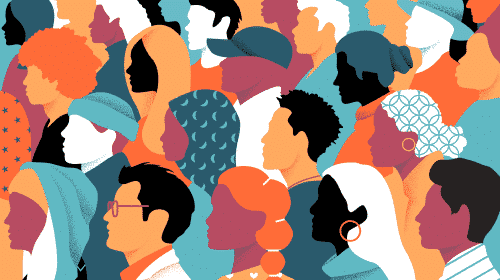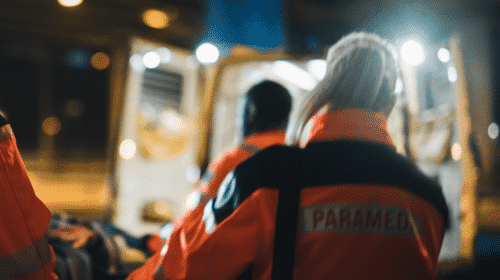Expert Insights
Across the Great Lakes State, more than 3,000 people died of drug overdose in 2021. And yet, Michigan residents who are struggling with substance abuse are also struggling to get help. In rural areas, the average wait-time for treatment is more than 10 days. When life is on the line, that’s far too long to wait for help. Clearly, Michigan needs more resources in these areas if we want to see substance abuse and overdose rates decline and recovery rates increase.
~ Kerry Nenn
Top Drug Rehabs in Michigan
Each alcohol and drug rehab in Michigan offers clients a different set of amenities, support programs, and therapies.
Below are the best addiction treatment centers in Michigan based on the following criteria:
- Offering evidence-based treatment
- Accreditation
- Certifications
- Client testimonials / reviews
Best Holistic Addiction Treatment: Henry Ford Maplegrove – West Bloomfield
Located in West Bloomfield, Michigan, Henry Ford Maplegrove provides a wide scope of evidence-based behavioral health and addiction treatment services. The facility offers assessments, round-the-clock inpatient rehab, residential and outpatient detox, medication-assisted treatment, virtual treatment, individual and group therapy, and outpatient treatment for teens.
Henry Ford Maplegrove specializes in:
- Residential and Outpatient Detox
- Outpatient Treatment
- Intensive Outpatient Programs (IOPs)
- Inpatient Treatment
- Medication-Assisted Treatment
- Virtual Care
- Specialized Women’s Programs
- Specialized Teen Programs
- Private and Semi-Private Room Options
Treatment programs are supported by:
- The Joint Commission
Location and contact information:
6773 West Maple Road
West Bloomfield, MI 48332
(248) 661-6100
Best Faith-Based Rehab: Catholic Charities of Shiawassee and Genessee Counties – Flint
The Catholic Charities of Shiawassee and Genessee Counties is a non-profit, comprehensive health and human services agency located in Flint, Michigan. They provide counseling, community services, meals, education, counseling and addiction treatment services to people of all faiths and beliefs. No one is turned away due to lack of funds.
Catholic Charities of Shiawassee and Genessee Counties specializes in:
- Mental Health Outpatient Services
- Substance Abuse Assessments
- Driver License Assessments
- Dual Diagnosis
Treatment programs are supported by:
- Council on Accreditation (COA)
Location and contact information:
901 Chippewa Street
Flint, MI 48503
(810) 232-9950
Best in Central Michigan: Ten16 Recovery Network – Clare
Ten16 Recovery Network is a licensed and accredited nonprofit organization, offering both inpatient and outpatient addiction treatment in Central Michigan. While their addiction treatment programs are based on universal recovery principles, they cater to the individual needs of each person seeking treatment.
Ten16 Recovery Network specializes in:
- Residential Inpatient Treatment
- Outpatient Treatment
- Outpatient Counseling and Prevention
- Recovery Outreach
- Sober Living Facilities
- Recovery Community Center
Treatment programs are supported by:
- National Association of Addiction Treatment Professionals
- Community Health Systems
- Mid-State Health Network
- Community Mental Health Association of Michigan
- Michigan Association of Recovery Residences
Location and contact information:
805 Beech Street
Clare, MI 48617
(989) 802-074230
Best Overall: Sacred Heart Rehabilitation Center – Saginaw
Sacred Heart Rehabilitation Center provides inpatient and outpatient behavioral health and addiction treatment services for adults, family, children, adolescents, older adults, veterans, and court treatment services at several locations throughout Michigan. They are dedicated to providing clinical and medical care, regardless of someone’s financial means.
Sacred Heart Rehabilitation Center specializes in:
- Residential Inpatient Treatment
- Outpatient Treatment
- Women’s Specialty Clinic
- Medication Assisted Treatment
- HIV/AIDS Clinic
- Recovery Aftercare Support Services
Treatment programs are supported by:
- The Commission on Accreditation of Rehabilitation Facilities
- National Council for Mental Wellbeing
- National Association of Addiction Treatment Professionals
Location and contact information:
301 East Genesee Avenue
Saginaw, MI 48607
(989) 776-600
Best Dual Diagnosis Treatment: Ascension Brighton Center for Recovery – Brighton
Ascension Brighton Center for Recovery provides comprehensive addiction support for adults and adolescents who are struggling with addiction and mental health issues. Their dedicated treatment programs offer 24/7 mental health emergency care, inpatient, outpatient, and counseling services.
Ascension Brighton Center for Recovery specializes in:
- Inpatient Residential Treatment
- Partial Hospitalization Programs (PHPs)
- Partial-day Programs
- Behavioral Health Counseling
- Crisis Hotlines
Treatment programs are supported by:
- The Commission on Accreditation of Rehabilitation Facilities
- National Council for Mental Wellbeing
- National Association of Addiction Treatment Professionals
Location and contact information:
12851 Grand River Avenue
Brighton, MI 48116
(877) 976-2371
Best in the UP: Great Lakes Recovery Centers – Marquette
Great Lakes Recovery Centers are best in the UP for evidence-based, whole-person addiction treatment. With multiple locations across Michigan’s Upper Peninsula, Great Lakes Recovery Centers provides comprehensive care that includes dual diagnosis, inpatient rehab, outpatient care, and aftercare services. Specialized women-only programming is available at New Hope House in Sault Ste. Marie, Michigan.
Clients receiving treatment at Great Lakes Recovery Centers can participate in intensive, cognitive behavioral therapy (CBT) and individual, group, and family forms of addiction counseling. Recovery-focused life skills training is also included. The Great Lakes treatment centers are located in comfortable, home-like settings that offer premium amenities, including private transportation.
Great Lakes Recovery Centers are CARF accredited. They accept private insurance, military insurance, Medicare, Medicaid, and self-pay. You can also apply for financial aid programs.
Best in West Mchigan: Western Michigan Comprehensive Treatment Center – Grandville
Western Michigan Comprehensive Treatment Center in Grandville offers integrative outpatient care for clients in opioid recovery. They offer personalized and evidence-based treatment for adults in the west Michigan area, including medical and mental health assessments, comprehensive case management, outpatient detox, and medication assisted treatment (MAT). Specialized services for young adults and people with co-occurring addiction and mental illness are available.
The Western Michigan Comprehensive Treatment Center’s Grandville location accepts walk-in patients, but they also provide same-day admission. Their MAT program utilizes multiple medications, including methadone, Suboxone, naltrexone, Vivitrol, and buprenorphine induction and maintenance. Cognitive behavioral therapy (CBT) and dialectical behavioral therapy (DBT) are provided as therapeutic modalities, along with individual, group, and family addiction treatment counseling.
Western Michigan Comprehensive Treatment Center is licensed by the state of Michigan and accredited by NAATP, SAMHSA, and CARF. They accept private insurance, Medicaid, self-pay, and financial aid are available.
How Many People Have Substance Use Problems in Michigan?

In 2019, over 1.3 million people aged 12 and older had used an illicit drug in Michigan.1

Of those 1.3 million, 615,000 people needed alcohol and or drug rehab, totaling 7.3% of the state’s population.1

Michigan recorded more drug overdose deaths than ever in 2021, with a total of 3,040 lives lost.2

In 2021, those who wanted addiction treatment in Michigan had to wait, on average, 6.5 days for intake.
In 2021, individuals in Michigan entered treatment for the following substance use disorders:2
individuals entered alcohol rehab
individuals entered rehab for heroin abuse
individuals entered rehab for opioid abuse
How Much Does Drug Rehab Cost in Michigan?
Treatment in Michigan can be expensive, with the state ranking as the 13th cheapest state for residential drug rehabilitation.2 On average, you can expect to pay $1,706 for outpatient care, whereas a residential stay will cost an average of $56,508.3
However, these prices can vary dramatically according to setting, treatment type, length of the program, features (like luxury), and more.
Low-Cost and Free Rehab Options
You can choose from a number of low-cost and free options in Michigan. One of these is a state-funded facility.
Programs that are funded by the state use government money to help pay for people who are financially unable to afford it. This can be because of a lack of income, because of a lack of insurance coverage, or both.
To find Michigan drug rehabs, contact
800-681-1058
(Who Answers?)
to learn more about local treatment options.
Does Insurance Cover Rehab Center Costs?
If you have insurance, using it to pay for your addiction treatment in Michigan can help to reduce the cost of care. According to the Affordable Care Act and the Mental Health Parity and Addiction Equity Act (MHPAEA) of 2008, health insurers and group health plans are required to cover mental health and substance use care.
Private Insurance
Some of the most popular insurance providers include Blue Cross and Blue Shield, United Health Career, and Aetna. When using your insurance to pay for addiction treatment, make sure to choose a facility or detox center that is in-network with your insurance provider, as your provider will cover more of the costs that way.
Medicaid
If you don’t have private insurance through an employer or a family member, you may qualify for Medicaid. Medicaid is a state and federally-funded program that pays for medical services for eligible adults that have a low income, pregnant women, children, and people with disabilities.
Medicare
Medicare is federally funded health insurance for people 65 years of age and older and some younger individuals who have disabilities.
Does Your Insurance Plan Cover Addiction Treatment?
To find out if your insurance plan covers addiction treatment, call the number on the back of your insurance card to verify your insurance coverage. Your provider will be able to provide you with information related to your deductible, co-pays, co-insurance, and more.
You can also ask for a list of preferred or in-network providers from your insurance company to prevent higher or unexpected costs down the line.
How to Finance Addiction Treatment in Michigan
If you find that all of the available free addiction treatment centers are full or you don’t have insurance, you still have alternatives:
Apply for a Scholarship
A scholarship is a financial award that you can apply for if you don’t have the financial means to pay yourself. Alcohol and/or drug scholarships can pay for the full cost of rehab or help to fill in any financial shortfalls from your insurance.
Find a Sliding-Scale Program
A sliding-scale fee is a common method of payment for alcohol and drug rehab programs. This type of payment option usually involves a fee schedule in which your payment amount varies based on your ability to pay.
Choose a Program That Offers Payment Plans
Many alcohol and drug rehab centers in Michigan offer payment plans. Payment plans break down the cost of care into affordable monthly payments that usually become payable after you complete the program.
What Kind of Addiction Treatment Program Do I Need?
Medical Detox is a treatment that helps you safely withdraw from a substance, such as alcohol or drugs, under the care of trained professionals. It usually involves administering another type of substance, drug, or therapy to help reduce the severity of side effects that can occur when going through alcohol or drug withdrawal.
Inpatient Drug rehab centers are facilities where you would live for a certain amount of time. They are commonly referred to as residential treatment centers. In an inpatient program, you will receive round-the-clock supervision and support.
Partial Hospitalization Programs (PHPs) offer comprehensive care while at the same time leaving you the option to return to your own home each night after you have received treatment. PHPs usually offer the same type of intensity that inpatient offers.
Intensive Outpatient Programs (IOPs) might work best for you if you don’t need the 24/7 support of inpatient. Intensive outpatient services offer, on average, a minimum of 9 hours of care a week in three 3-hour sessions.
Standard Outpatient involves care that doesn’t require overnight stays or residential living arrangements. With standard outpatient, you can still work or go to school. Outpatient offers fewer than 9 hours of care per week for up to 3 months.
Aftercare programs are options that become available once you have completed outpatient or inpatient. These are intended to help keep you from relapsing and offer you continued support.
If you need assistance in choosing which level of care is best for you, call
800-681-1058
(Who Answers?)
and get help today.
Are There Specialized Drug Rehabs in Michigan?
Veterans Rehab
These programs often focus on specific challenges that you, as a veteran, may experience, like PTSD (post-traumatic stress disorder), anxiety, depression, and/or the struggles with transitioning back to life as a civilian.
LGBTQ+ Rehab
Many drug and alcohol rehab centers in Michigan offer options specifically to individuals in the LGBTQ+ community. These programs recognize the distinctive concerns that come with having a substance use disorder or alcohol misuse while also being a part of the LGBTQ+ community.
Men-Only Rehab
Certain drug rehab centers in Michigan are especially sensitive to the needs of men. These programs are aware of the unique challenges that you may face as a man seeking help. Men face unique societal challenges that can prevent them from seeking help, such as the expectation to be strong, independent, and unemotional.
Women-Only Rehab
Select treatment centers focus on the needs of women in the community. These emphasize challenges that you may have struggled with as a woman seeking to enter into rehab. Some of these challenges include sexual assault, domestic violence, childhood trauma, and parenting issues.
Teen Rehab
Often, being a teenager can be a challenging experience. Teen-centered treatment facilities realize this and work with you to address the unique challenges that arise from being a teenager, like peer pressure, complex decision-making, and overcoming struggles associated with your personal identity.
Should You Travel for Drug and Alcohol Rehab in Michigan?
Michigan is a large state with many high-quality programs for you to choose from. To determine whether you should travel to Michigan for your treatment, you should consider whether you have the financial means to travel and how leaving your current environment would impact your alcohol and/or drug use.
For example, if you live in a more rural part of Michigan that doesn’t offer a wide variety of program choices, then you may choose to travel to Detroit for a wider range of options. If you don’t live near Michigan, you should consider the cost of traveling out of state for your care and whether your insurance (if you have insurance) will consider your facility or detox center of choice to be out of network.
You may also want to consider how leaving your current residence to travel to Michigan for your alcohol and/or drug treatment will impact your family and how a change in your environment could impact your addiction.
What Are the Alcohol and Drug Laws in Michigan?
Michigan lawmakers and public health agencies enacted the following laws related to substance misuse and overdoses:1,2
Michigan Good Samaritan Overdose Law: This law encourages witnesses to call 911 when someone is experiencing an overdose and protects them from prosecution for minor drug-related charges.
Michigan Naloxone Access Law: Pharmacists in Michigan can dispense Narcan (naloxone) without a prescription, increasing access to this life-saving opioid overdose reversal medication.
Michigan Driving or Operating Under the Influence Laws: A first offense of driving or operating under the influence of alcohol or liquor (OUIL) or drugs (OUID) results in a fine up to $500, imprisonment up to 93 days, and/or driver’s license suspension for up to two years.4 Additional offenses can lead to imprisonment of up to five years and driver’s license revocation for up to five years.
Michigan Regulation and Taxation of Marijuana Act: In 2018, the Michigan Regulation and Taxation of Marijuana Act legalized recreational marijuana for adults over the age of 21. Michigan state law specifies all use of cannabis must be done in private; it is illegal to use cannabis in a public space. It is also illegal to carry cannabis in areas frequented by children, such as schools or school buses.
If you think you need help in choosing a drug rehab center in Michigan, contact
800-681-1058
(Who Answers?)
to learn more today.
Resources
- Michigan.gov. (2021). September 2021: Alcohol and Drug Addiction Recovery Month.
- FindTreatment.gov. (n.d.). FindTreatment.gov.
- Michigan Substance Use Disorder Data Repository. (2021). Treatment Episode Data Set (TEDS).
- National Center for Drug Abuse Statistics. (2022). Average Cost of Drug Rehab [2022]: by Type, State & More.
- Medicaid. (2022). Parity.
- Center for Medicare Advocacy. (2022). Medicare Coverage of Mental Health and Substance Abuse Services.
- Naloxone – patients. (n.d.). U-M Injury Center. Retrieved November 15, 2022, from https://injurycenter.umich.edu/opioid-overdose/michigan-safer-opioid-prescribing-toolkit/management-strategies-for-chronic-opioid-use-opioid-use-disorders/naloxone/patients/
- Impaired driving law. (n.d.). Michigan State Police. Retrieved November 1, 2022, from https://www.michigan.gov/msp/divisions/ohsp/safety-programs/impaired-driving/impaired-driving-law




